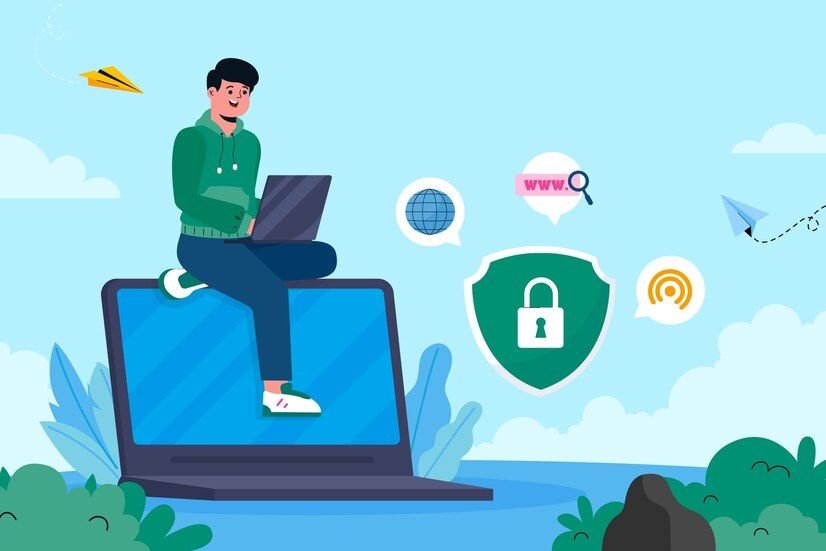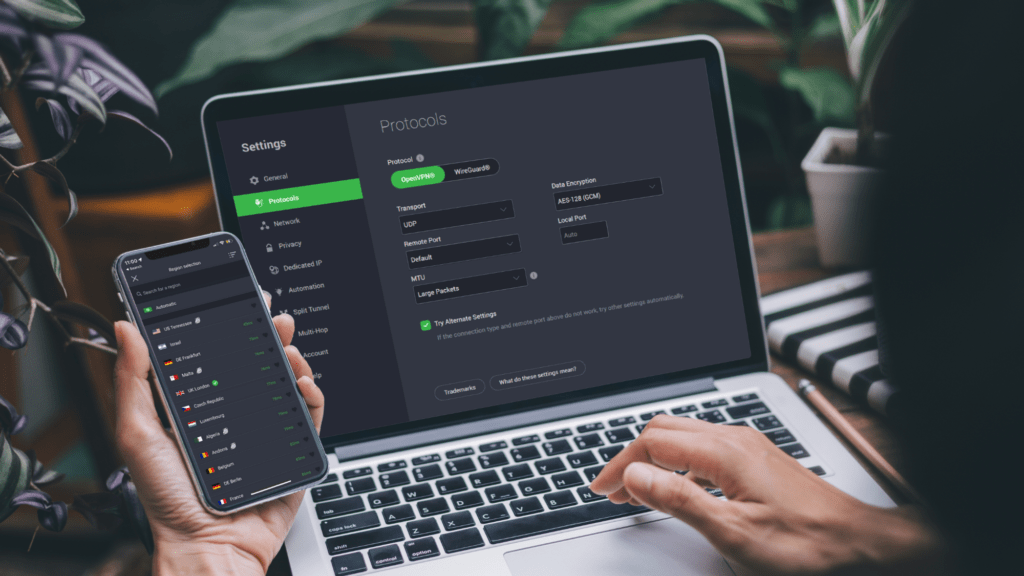
Understanding VPN For Torrenting
As an avid internet user, I’m sure you’ve come across the terms “VPN” and “torrenting” before, but do you really understand what they mean and why they are important? Let me break it down for you.
A VPN, or Virtual Private Network, is a technology that allows you to create a secure connection to another network over the internet. It encrypts your internet traffic and routes it through a remote server, hiding your IP address and making it appear as if you are browsing from a different location. This is particularly useful when it comes to torrenting.
Torrenting, on the other hand, is a popular method of file sharing that uses a peer-to-peer network. It allows users to download and upload files simultaneously by connecting to multiple sources. While torrenting itself is not illegal, it has been associated with copyright infringement due to the widespread sharing of copyrighted material. This is where a VPN comes in handy.
Why You Need a VPN for Torrenting
The primary reason why you need a VPN for torrenting is to protect your online privacy. When you torrent without a VPN, your IP address is visible to anyone who is monitoring the network. This means that your internet service provider (ISP), copyright trolls, and even government agencies can track your activity and potentially take legal action against you.
By using a VPN, you can mask your IP address and make it virtually impossible for anyone to trace your online activity back to you. This ensures that you can torrent safely and anonymously without worrying about the consequences.
How a VPN Protects Your Online Privacy
When you connect to a VPN server, your internet traffic is encrypted, meaning that it is scrambled and unreadable to anyone trying to intercept it. This encryption ensures that your online activity remains private and secure.
Additionally, a VPN also hides your IP address by replacing it with the IP address of the VPN server you are connected to. This makes it impossible for anyone to identify your real location or track your online activity.
Furthermore, reputable VPN providers have a strict no-logs policy, which means that they do not keep any records of your online activity. This ensures that even if someone were to request information about your internet usage, there would be nothing to provide.
Benefits of Using a VPN for Torrenting
Using a VPN for torrenting offers numerous benefits beyond just protecting your online privacy. Here are a few key advantages:
- Access to Geo-Restricted Content: When you connect to a VPN server in a different country, you can bypass geo-restrictions and access content that is otherwise unavailable in your region. This is particularly useful for accessing streaming services or websites that have region-specific restrictions.
- Faster Download Speeds: Some ISPs throttle or limit the bandwidth for torrenting activities. By using a VPN, you can bypass these restrictions and potentially experience faster download speeds.
- Protection Against Malware and Hackers: Torrenting websites are notorious for hosting malware and attracting hackers. A VPN adds an extra layer of security by encrypting your internet traffic and protecting you from these threats.
- Anonymity: By using a VPN, you remain anonymous online, which can help protect you from cyber threats and identity theft.
Popular VPNs for Torrenting
When it comes to choosing a VPN for torrenting, there are several options available. Here are a few popular VPNs that are known for their strong security and compatibility with torrenting:
- NordVPN: NordVPN is a highly regarded VPN provider that offers a wide range of servers optimized for torrenting. It has a strict no-logs policy and uses military-grade encryption to ensure your online privacy.
- Surfshark: Surfshark is another reliable VPN that allows torrenting on its servers. It offers unlimited simultaneous connections and has a built-in ad blocker and malware protection.
- Private Internet Access (PIA): PIA is a popular choice among torrenting enthusiasts. It has a large network of servers and offers strong encryption and advanced privacy features.
- CyberGhost: CyberGhost is known for its user-friendly interface and dedicated torrenting servers. It offers fast speeds and strong security features.
- ProtonVPN: ProtonVPN is a Swiss-based VPN provider that takes privacy seriously. It offers secure torrenting and has a free plan with limited features.
Factors to Consider When Choosing a VPN for Torrenting
When selecting a VPN for torrenting, there are a few important factors to consider:
- Logging Policy: Make sure the VPN provider has a strict no-logs policy to ensure that your online activity remains private.
- Torrenting Policy: Check if the VPN provider allows torrenting on its servers and if there are any restrictions or limitations.
- Connection Speeds: Look for a VPN that offers fast and stable connection speeds to ensure smooth torrenting.
- Server Locations: Consider the number and locations of the VPN provider’s servers to ensure that you have a wide range of options and can connect to a server near your physical location for optimal performance.
- Security Features: Look for VPNs that offer strong encryption, a kill switch, and DNS leak protection to ensure maximum security while torrenting.
Step-by-Step Guide on Setting Up a VPN for Torrenting
Now that you understand the importance of a VPN for torrenting, let’s walk through the steps of setting up a VPN for safe and secure torrenting:
- Choose a VPN: Select a VPN provider that meets your requirements in terms of security, speed, and compatibility with torrenting.
- Sign Up: Create an account with the VPN provider and choose a subscription plan that suits your needs.
- Download and Install: Download the VPN client software from the provider’s website and follow the installation instructions.
- Connect to a Server: Launch the VPN client and connect to a server optimized for torrenting. Usually, VPN clients have a list of servers categorized by their purpose, so you can easily find one for torrenting.
- Adjust Settings: Configure any additional settings, such as enabling the kill switch or DNS leak protection, to enhance your security while torrenting.
- Start Torrenting: With the VPN connected, you can now safely and anonymously start torrenting without worrying about your online privacy.
Best Practices for Torrenting with a VPN
While a VPN provides essential security and privacy while torrenting, it’s important to follow best practices to ensure optimal protection:
- Use Trusted Torrenting Websites: Stick to reputable torrenting websites that are known for hosting legitimate content and are less likely to contain malware or other security threats.
- Read User Reviews: Before downloading a torrent file, take a moment to read user reviews. This can help you gauge the reliability and quality of the file and reduce the risk of downloading malware or fake files.
- Enable the Kill Switch: Make sure the VPN client’s kill switch is enabled. This will automatically disconnect your internet connection if the VPN connection drops, preventing your real IP address from being exposed.
- Regularly Update Your VPN Software: Keep your VPN client software up to date to ensure that you have the latest security patches and improvements.
- Avoid Public Wi-Fi Networks: When torrenting, it’s best to avoid using public Wi-Fi networks, as they are often unsecured and can expose your online activity to potential threats.
Risks of Torrenting Without a VPN
Torrenting without a VPN exposes you to various risks, including:
- Legal Consequences: Without a VPN, your IP address is exposed, making it easy for copyright holders and law enforcement agencies to track your online activity and potentially take legal action against you.
- ISP Throttling: Some internet service providers actively monitor torrenting activities and may throttle your connection speed, resulting in slower downloads and uploads.
- Malware and Cyber Threats: Torrenting websites are often infested with malware and can expose you to cyber threats such as viruses, ransomware, and phishing attacks.
- Privacy Concerns: Without a VPN, your online activity is not private, and your personal information can be easily accessed by anyone monitoring the network.
Conclusion: Stay Safe While Torrenting with a VPN
In conclusion, using a VPN for torrenting is essential to protect your online privacy and ensure a safe and secure torrenting experience. A VPN encrypts your internet traffic, hides your IP address, and provides numerous benefits such as access to geo-restricted content and protection against malware and hackers.
When choosing a VPN, consider factors such as logging policies, torrenting compatibility, connection speeds, server locations, and security features. Popular VPNs like NordVPN, Surfshark, Private Internet Access, CyberGhost, and ProtonVPN are known for their strong security and torrenting capabilities.
Follow the step-by-step guide and best practices mentioned in this article to set up a VPN for torrenting and ensure optimal protection. Remember, torrenting without a VPN exposes you to legal consequences, ISP throttling, malware, and privacy concerns. Stay safe and enjoy your torrenting experience with the added security and privacy of a VPN.
Ready to protect your online privacy while torrenting? I recommend these VPN services:



